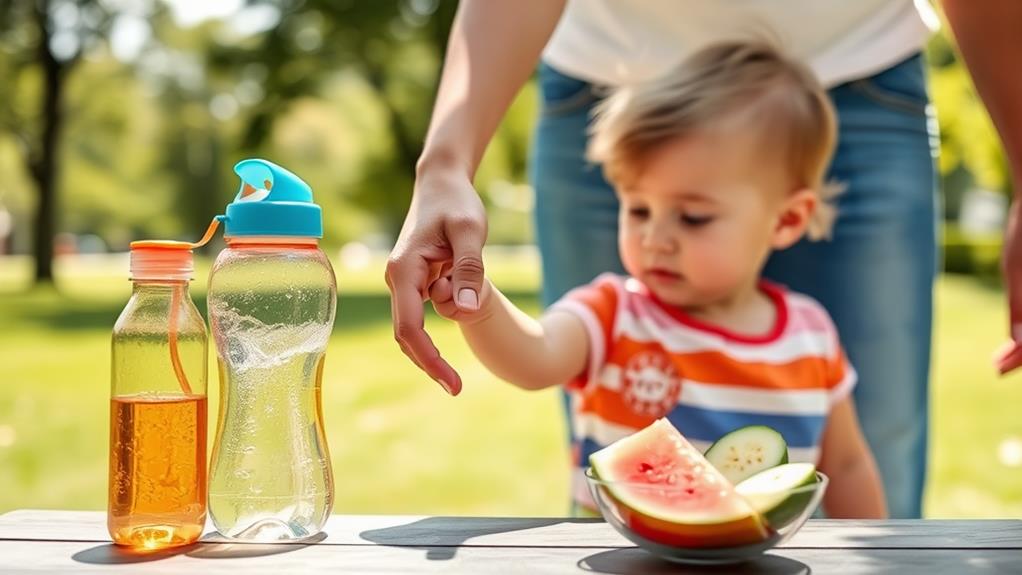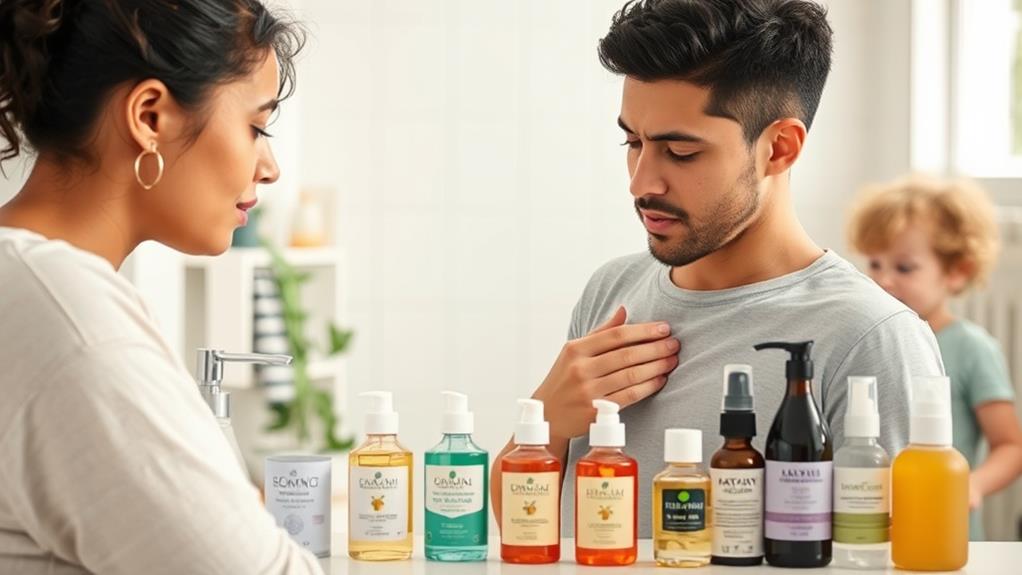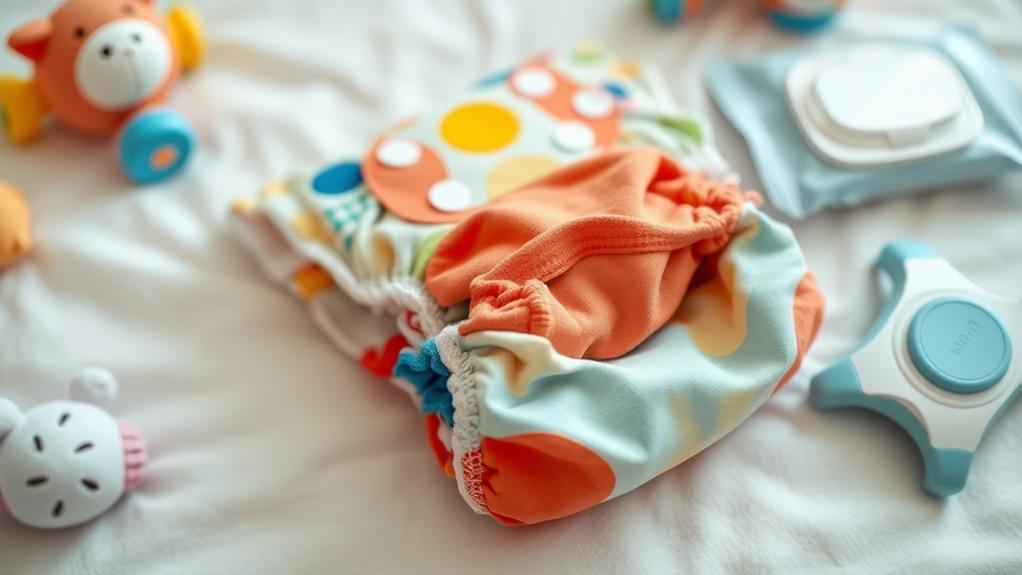When it comes to your toddler's health, recognizing the signs of dehydration can make a significant difference. You might notice symptoms like a dry mouth, fewer wet diapers, or even irritability that can signal a more serious issue. Understanding these signs is essential, especially if you're unsure about the next steps. What should you do if you observe these indicators? And how can you ensure your child stays hydrated in the future? Let's explore these critical points to help you navigate this important aspect of your child's well-being.
Understanding Dehydration
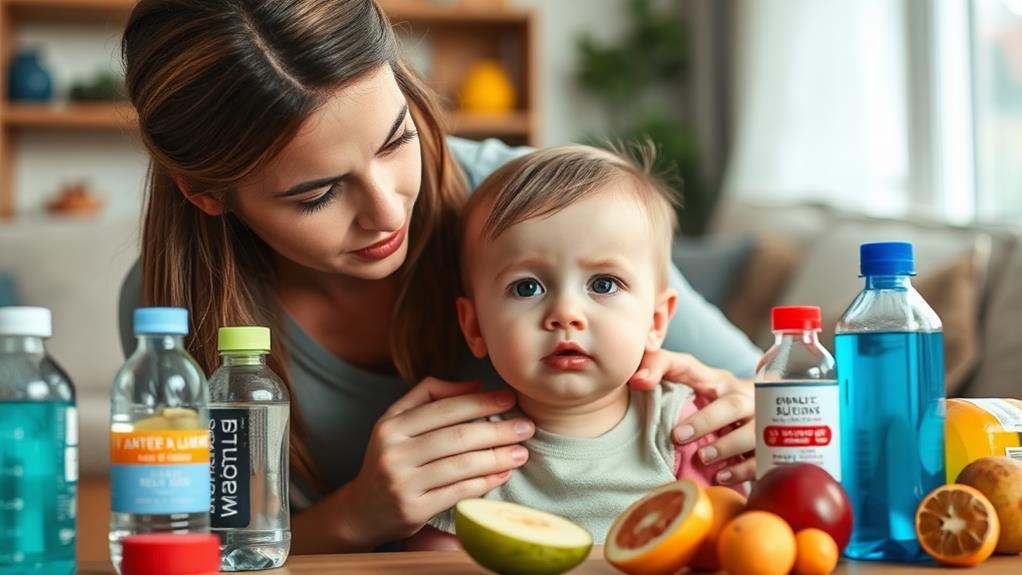
When it comes to toddlers, understanding dehydration is crucial for their health and well-being. Dehydration happens when their little bodies don't have enough water, often due to losing fluids from vomiting or diarrhea, or simply not drinking enough.
Since toddlers are smaller and lose fluids more quickly than older kids or adults, they're at a higher risk.
You should watch for signs of dehydration like a dry or sticky mouth, few or no tears when they cry, sunken eyes, or decreased urination. If you notice any of these symptoms, it's time to act!
Environmental factors can also play a big role. Hot weather, fever, or a lot of running around can make dehydration happen faster than you think.
When it comes to treating dehydration, oral rehydration solutions are your best friend. These special drinks can help restore the lost fluids and electrolytes your toddler needs.
Common Causes of Dehydration
Dehydration in toddlers can stem from various common causes that parents should be aware of.
First, illnesses like vomiting or diarrhea can lead to significant fluid loss. If your little one's tummy is upset, they mightn't be drinking enough, and that's a big red flag for dehydration.
Hot weather or a fun day of running around can also increase sweating, which means more fluid loss. Keep an eye on your toddler when they're playing outside! If they're not sipping on water, they could get dehydrated faster than you think.
Mouth sores or sore throats can make drinking tough for toddlers, too. Who wants to drink when it hurts? This can further increase their risk of dehydration, leaving parents in a bit of a pickle.
Lastly, chronic conditions like diabetes can heighten a toddler's susceptibility to dehydration if not managed properly.
Key Signs of Dehydration
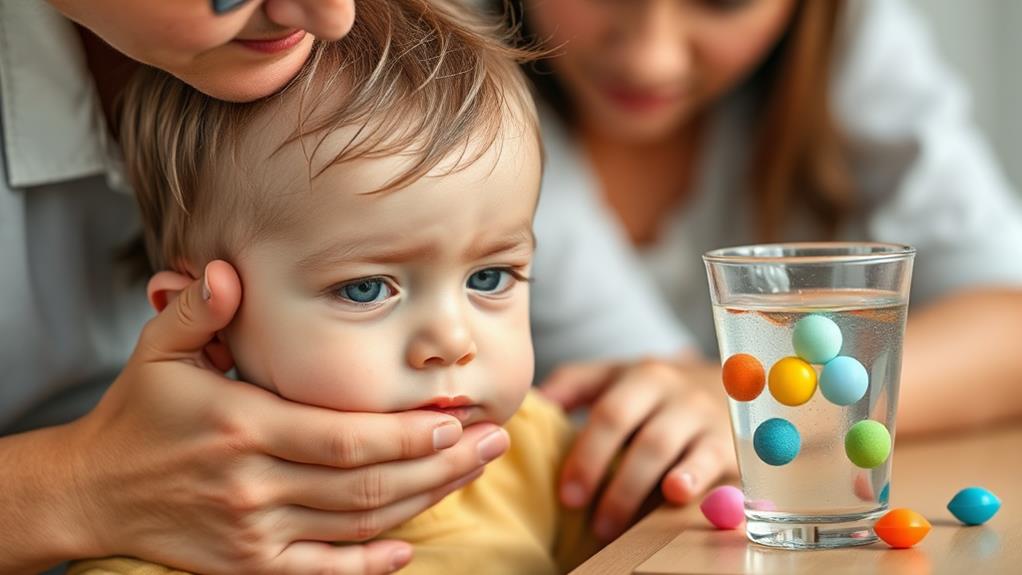
After understanding the common causes of dehydration, it's important to recognize the signs that your toddler may be affected. One key sign is a dry or sticky mouth. If you notice your little one's mouth looks like a desert, they might need more fluids.
Another crucial indicator is decreased urination. If your toddler's wet diapers are fewer than usual, that could be a red flag that they're dehydrated.
You might also notice that your toddler is more irritable or fussy than usual. When they're low on energy, it can show in their mood. Pay attention to their eyes, too. Sunken eyes or a sunken fontanelle in infants can be signs that your toddler needs help.
Lastly, check their urine. If it's dark yellow, that concentrated urine means they aren't getting enough hydration.
Treatment for Mild Dehydration
To effectively treat mild dehydration in toddlers, start by offering oral rehydration solutions (ORS) like Pedialyte or Gastrolyte. These drinks are designed to replace lost fluids and electrolytes, helping your little one feel better.
You'll want to give small sips every few minutes, especially if they're dealing with vomiting or diarrhea. Remember, no plain water or sugary drinks—those can actually make dehydration worse!
Keep an eye on your toddler's hydration status. Check the color and frequency of their urine. If it's pale yellow, you're on the right track!
But if you notice signs of severe dehydration, like very dry mouth, lethargy, or no urine output, don't wait—seek medical help right away.
It's essential to be patient during this process. Sometimes, kiddos can be picky, so you might need to get creative with how you serve the ORS.
Maybe freeze it into popsicles or mix it with a bit of fruit puree. Just make sure you're helping them stay hydrated without any sneaky sugar traps!
Managing Severe Dehydration
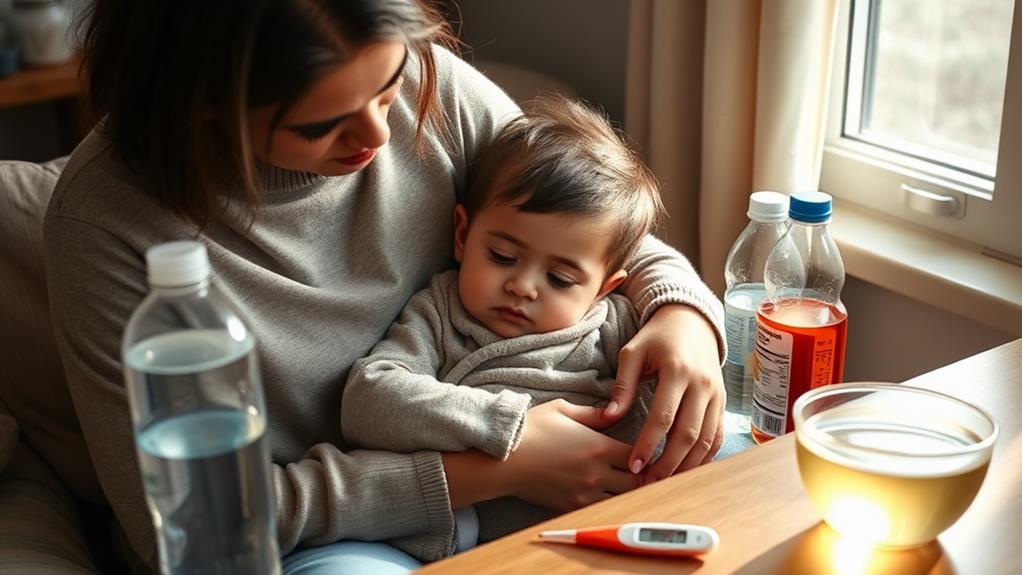
Recognizing the signs of severe dehydration in toddlers is vital for their health and safety. If you notice extreme thirst, lethargy, sunken eyes, or cold extremities, it's time to seek medical attention right away. Severe dehydration is no joke, and it can lead to serious problems, including brain damage, if not treated quickly.
When you get to the doctor, they'll likely use intravenous (IV) fluids. This method is much faster than oral rehydration solutions (ORS), which just won't cut it in severe cases. While ORS can be helpful for mild dehydration, they aren't enough when your little one needs a quick hydration boost.
In the medical setting, the doctors will monitor vital signs like heart rate and blood pressure to check how your toddler is doing. This careful observation helps them understand the severity of the dehydration and how well the treatment is working.
Prevention Strategies for Parents
Keeping toddlers hydrated should be a top priority for parents, especially during hot weather or active play. One great way to ensure proper hydration is to encourage your little one to drink fluids regularly throughout the day.
Setting a hydration schedule can help, so they've regular breaks to sip water during playtime or outings.
Don't forget to offer a variety of hydrating foods, like juicy fruits and crunchy vegetables, to boost their fluid intake. These tasty snacks can make hydration feel like a treat, not a chore!
It's also important to keep an eye out for the early signs of dehydration. Watch for dry lips, decreased urination, or if your toddler seems a bit more irritable than usual.
Catching these signs early can help you act quickly.
Lastly, limit sugary or caffeinated drinks, as they can actually make dehydration worse. Stick to water or diluted oral rehydration solutions instead.
When to Seek Medical Help
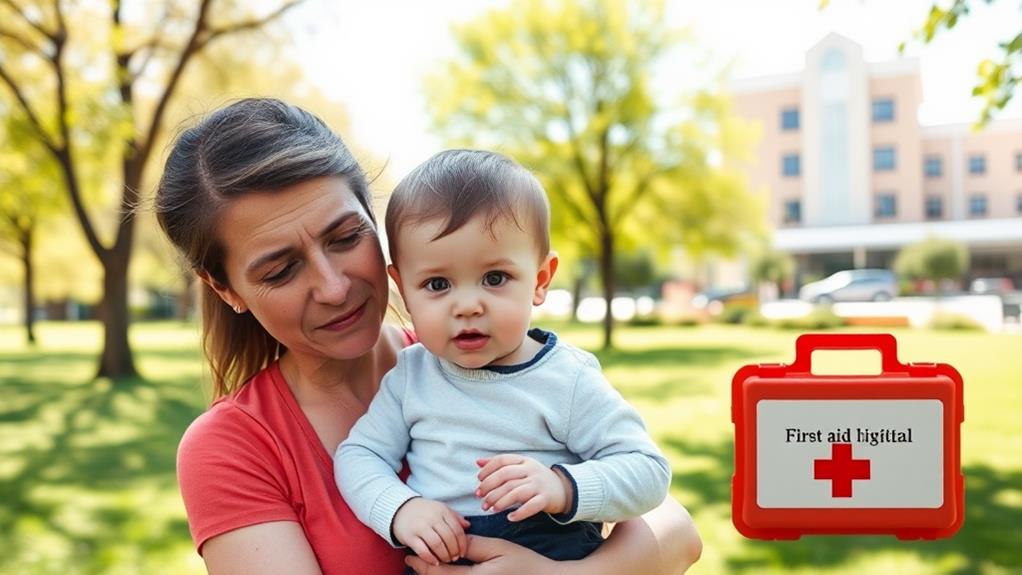
Even with proactive hydration strategies in place, there are times when you need to be vigilant about your toddler's health. If you notice any symptoms of dehydration, it's a good idea to keep an eye out for more serious signs.
For example, if your little one shows lethargy, extreme thirst, or sunken eyes, don't wait—seek medical help right away! These can be serious signs of dehydration that need urgent care.
Also, if your toddler hasn't urinated for over 8 hours or their urine is very dark yellow, it's time to consult a healthcare professional. Persistent vomiting or diarrhea that keeps them from keeping fluids down for several hours is another red flag.
Don't hesitate to call the doctor if they seem unusually drowsy or confused, as these can be alarming signs of dehydration too.
And let's not forget about infants under six months! If they show signs like a sunken fontanelle or lack of tears, you need to act fast.
Your toddler's health is important, so trust your instincts. If something feels off, it's always wise to reach out for help.

